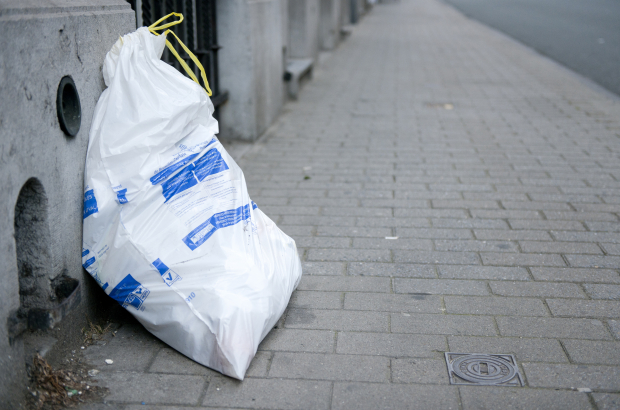- Daily & Weekly newsletters
- Buy & download The Bulletin
- Comment on our articles
Solid bins touted as a solution to widespread rubbish problem
In some Brussels municipalities, it is not uncommon to see white rubbish bags torn open with the waste spread across the street. Animals such as foxes, crows or stray cats, looking for something to eat, are the most likely culprits.
Faced with such a problem, the municipality of Jette has announced that it wants to use solid rubbish bins by 2022. Several other municipalities have already started to do so, and the results so far have been positive.
Since the beginning of the health crisis, Jette’s councillor responsible for public cleanliness Mounir Laarissi has noticed a rise in rubbish littering the streets of the commune. "For the past year, rubbish hasn't been collected until after lunchtime,” Laarissi said. “Waste bags can therefore sometimes be outside for 20 hours."
The longer a bag is left out in the street, the more likely it is that an animal will tear it open. A solution must therefore be found to prevent this from happening. "The solution we have found today is to make solid construction bins available free of charge to citizens who want them," added Laarissi. The Jette authorities have taken inspiration from other Brussels municipalities which use this system.
The municipalities most affected by the problem are those closer to green and wooded spaces, from which animals can enter the streets to prowl at night for food. The first municipalities to have opted for rigid rubbish cans are the municipalities bordering the Sonian Forest, such as Watermael-Boitsfort, Woluwe-Saint-Pierre and Uccle.
Uccle councillor Carine Gol-Lescot spoke positively about the move to solid bins: "There is a clear decrease in the uncleanliness of the streets that use this system. When the inhabitants acquire them, very often the neighbours end up doing the same thing."
In Uccle, these bins are bought from the local authorities at the cost price of €10. It is also possible to buy your own bin, respecting the required size standards. Other municipalities, on the other hand, offer bins free of charge to their inhabitants.
By 2023, the sorting of rubbish will be mandatory for Brussels residents, putting an end to food waste ending up in the white bags. For the city’s sanitary department, the solution to this problem is the rigid orange container. "Currently in white bags, the waste is 40 to 45% food,” said a spokesperson for the department.
“Our proposal is to take the food waste out of the white bag, to deposit it in the orange bag, and then put this orange bag in the orange container. This container has a lid, so there is no chance of the waste inside being disturbed by animals."
This system allows the inhabitants of Brussels to sort their waste, while keeping the streets clean. It also has another advantage: it is more compact than the bins provided for white bags. It is therefore more suitable for smaller houses and apartments. A dozen Brussels municipalities offer this container free of charge. It is also possible to get one at the Recypark recycling facilities located around the capital.


















Comments
I grew up in Brussels, and we had only hard bins.